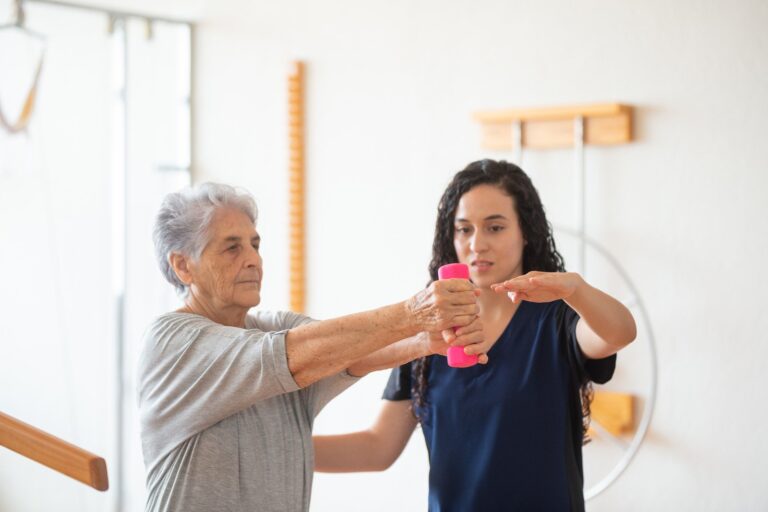Introduction
The National Disability Insurance Scheme (NDIS) provides life-changing opportunities for individuals with disabilities, offering comprehensive support to improve their confidence and well-being. When combined with occupational therapy, this support becomes a powerful tool to empower individuals and enable them to lead independent, fulfilling lives.
At Limitless Living Therapy, we focus on leveraging the benefits of NDIS to provide tailored therapy solutions that meet the unique needs of every participant. By enhancing their physical, emotional, and social capabilities, we help individuals thrive in all areas of life.

Understanding the Connection Between NDIS and Occupational Therapy
The NDIS is designed to provide individuals with disabilities the resources they need to achieve their goals. Occupational therapy, on the other hand, addresses physical, cognitive, and emotional challenges, enabling individuals to perform daily tasks effectively. Together, they form a dynamic duo to promote growth and self-sufficiency.
The Role of NDIS in Supporting Participants
- Personalized Plans: Participants receive customized plans that focus on their specific needs and aspirations.
- Comprehensive Services: NDIS covers a wide range of services, including therapy, equipment, and home modifications.
- Goal-Oriented Approach: Participants are encouraged to set and achieve meaningful goals.
How Occupational Therapy Enhances NDIS Support
- Skill Development: Therapists work on building essential skills for daily living.
- Emotional Resilience: Therapy helps individuals cope with challenges and build confidence.
- Community Integration: Participants are supported to engage in social and recreational activities.
The Impact of Occupational Therapy on Confidence and Well-Being
Confidence and well-being are crucial for a fulfilling life. Occupational therapy addresses these aspects by providing tools and strategies to overcome barriers.
1. Physical Independence
Occupational therapy helps participants regain control over their physical abilities, enabling them to perform tasks like dressing, cooking, and mobility. This newfound independence fosters confidence and self-esteem.
2. Emotional Growth
Therapy sessions often include strategies for managing stress, anxiety, and frustration, promoting emotional resilience.
3. Social Engagement
Through skill-building and encouragement, participants gain the confidence to interact socially and build meaningful relationships.
4. Improved Quality of Life
By addressing both physical and emotional challenges, occupational therapy significantly enhances the overall quality of life.
Tailored Therapy Plans for Building Confidence
At Limitless Living Therapy, we understand that no two participants are the same. Our tailored therapy plans focus on individual strengths, challenges, and aspirations.
Assessment and Goal Setting
Our therapists begin with a thorough assessment to identify the participant’s needs and goals. This step ensures that the therapy plan is aligned with their aspirations.
Skill-Building Activities
Participants engage in activities that enhance their abilities, such as:
- Fine motor skills for writing and using tools
- Gross motor skills for walking and mobility
- Cognitive skills for decision-making and problem-solving
Adaptive Strategies
We teach participants how to use adaptive equipment and techniques to overcome challenges and perform daily tasks independently.
Ongoing Support and Feedback
Regular feedback sessions help participants track their progress and stay motivated.
Promoting Well-Being Through NDIS Support
Well-being encompasses physical health, mental health, and a sense of purpose. NDIS and occupational therapy work together to promote holistic well-being.
Physical Health
Therapy focuses on improving physical fitness and mobility, reducing the risk of injuries and chronic conditions.
Mental Health
Participants receive emotional support and counseling to manage stress, depression, and anxiety effectively.
Purpose and Fulfillment
By achieving their goals and engaging in meaningful activities, participants experience a sense of accomplishment and joy.
Success Stories: Transforming Lives with Occupational Therapy
Case Study 1: Reclaiming Independence
Emily, a participant with mobility challenges, regained her ability to walk independently after months of occupational therapy. Today, she confidently navigates her home and community.
Case Study 2: Building Social Confidence
John struggled with social anxiety, which limited his interactions. Through tailored therapy sessions, he learned communication techniques and now participates in community events.
Why Choose Limitless Living Therapy?
1. Expertise in NDIS Support
Our team is well-versed in the NDIS framework and ensures participants maximize their benefits.
2. Personalized Approach
We design therapy plans that reflect each participant’s unique needs and goals.
3. Comprehensive Services
From physical rehabilitation to emotional support, our services cover all aspects of well-being.
4. Commitment to Excellence
Our dedication to empowering participants ensures they receive the highest quality care.
Steps to Access NDIS Support with Limitless Living Therapy
1. Eligibility Check
Determine if you qualify for NDIS support.
2. Plan Development
Work with our team to create a personalized therapy plan.
3. Service Implementation
Begin therapy sessions and start working toward your goals.
4. Regular Reviews
Evaluate progress and adjust the plan as needed to ensure continued success.
Building Emotional Resilience with Therapy
Occupational therapy plays a vital role in helping participants develop emotional resilience. Life’s challenges can often feel overwhelming, but with tailored strategies and support, individuals learn to adapt and thrive.
Identifying Emotional Triggers
Therapists work closely with participants to recognize and understand the triggers that cause stress or anxiety. This awareness is the first step toward managing emotions effectively.
Developing Coping Mechanisms
Practical tools such as mindfulness, breathing exercises, and structured routines are introduced to help participants stay calm and focused during difficult moments.
Encouragement and Positivity
Therapists provide constant encouragement, helping participants see their potential and progress, which significantly boosts their confidence.
The Importance of Community Engagement
Social connections are crucial for building confidence and maintaining well-being. Occupational therapy encourages participants to step outside their comfort zones and interact with their communities.
Engagement Opportunities
Therapy plans include activities like joining local clubs, attending social events, or participating in group therapies that foster connections.
Strengthening Relationships
Participants learn effective communication and interpersonal skills, allowing them to build stronger relationships with family, friends, and peers.
Reducing Isolation
By staying engaged in community life, individuals combat feelings of loneliness, which positively impacts their mental health.

The Role of Caregivers in Therapy Success
Caregivers are a critical part of a participant’s journey toward independence and confidence. Occupational therapy often includes guidance and support for caregivers, ensuring they play a constructive role.
Training for Daily Assistance
Caregivers receive instructions on how to assist participants effectively with daily tasks and therapy exercises.
Emotional Support for Caregivers
Therapy sessions also address caregiver stress, offering strategies to maintain their well-being.
Creating a Collaborative Environment
Therapists, participants, and caregivers work as a team to ensure therapy goals are met efficiently.
Leveraging Assistive Technology for Independence
Assistive technology has transformed the way individuals with disabilities approach daily challenges. Occupational therapy introduces participants to innovative tools and devices that enhance their independence.
Adaptive Equipment
From wheelchairs to grab bars, adaptive equipment helps participants perform tasks safely and comfortably.
Smart Devices
Technology like voice-activated assistants, reminder apps, and wearable health monitors make managing routines easier.
Training and Integration
Therapists ensure participants and caregivers are trained to use these technologies effectively, integrating them seamlessly into daily life.
Conclusion
NDIS support and occupational therapy offer a pathway to building confidence and enhancing well-being. By addressing physical, emotional, and social challenges, participants are empowered to lead fulfilling, independent lives.
At Limitless Living Therapy, we are committed to helping participants achieve their goals and unlock their full potential. Through personalized therapy plans, ongoing support, and a holistic approach, we strive to make a lasting difference in their lives.
Take the first step toward confidence and well-being with Limitless Living Therapy. Together, we can transform challenges into opportunities and help you live without limits.







